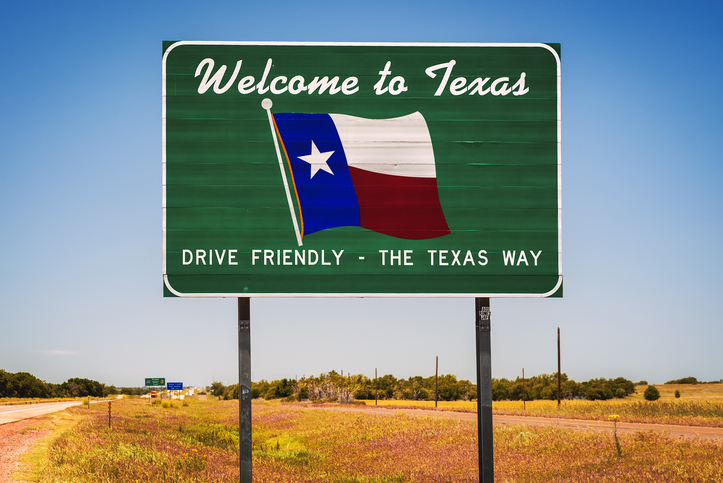
Summer road trip? Learn what to do if you’re in an accident out of state.
Everything You Need to Know About Out-of-State Car Accidents
Millions of families will hit the road for family vacations this summer. It’s often more affordable and convenient to travel by car rather than fly, especially with dogs and small children, making it a popular option.
You probably already know that different states litigate auto accidents differently. So, what happens when a Texas resident is in an accident in another state?
How State Laws Affect Auto Accidents for Texas Residents
If you are in an accident in another state, your accident will be litigated under that state’s laws, even if you are a Texas resident. For example, if a driver from Georgia and a driver from Texas get into an auto accident in Florida, Florida state laws will apply in that case.
Does My Insurance Cover Accidents in Another State?
Typically speaking, yes. Auto accident policies almost always cover all 50 states, as well as U.S. territories and provinces of Canada. If you have coverage in Texas but are hurt in an auto accident in Georgia, your coverage should still apply, and so on.
Do I Have to Call the Police for an Accident in Another State?
The criteria that determine whether or not you call the police after an accident varies by state. In order to know exactly what applies in your case, search the DMV website of the state you are in.
That being said, there are general guidelines that most states follow:
- Injuries or Fatalities — Almost every state requires you to call the police if anyone is injured or killed in an accident.
- Property Damage — Many states have a threshold for property damage, often ranging from $500 to $1,500. If the damage exceeds this amount, you must report the accident to the police.
- Hit and Run: If the accident involves a hit-and-run or an unattended vehicle, you are generally required to report it to the police.
- Public Property: If the accident results in damage to public property (e.g., road signs, guardrails), you typically need to notify the authorities.
Just because you may not have to call the police for an accident doesn’t mean that you shouldn’t. Police reports are often required for insurance claims. Additionally, some injuries that are severe and life-threatening do not immediately appear. If you do not report the accident, it is difficult to prove that your injury resulted from the accident and could impact your ability to receive compensation.
As a general rule of thumb, call the police after an accident in another state.
At-Fault vs. No-Fault States
In most states across the U.S., liability is determined by figuring out who caused the accident. That person(s) is then required to compensate the people they injured through their insurance policy.
However, in order to protect against unnecessary lawsuits, some states follow a no-fault system. This system skips the process of assigning blame, and individuals are compensated from their own insurance policies. The states/territories that use a no-fault system currently include:
- Florida
- Hawaii
- Kansas
- Kentucky
- Massachusetts
- Minnesota
- Michigan
- New Jersey
- New York
- North Dakota
- Pennsylvania
- Utah
- And Puerto Rico.
What to Do After an Accident in Another State
Fortunately, the procedure for an out-of-state accident is the same as an accident in your home state.
- Check for Injuries — On yourself, your passengers, and other vehicles involved.
- Call 9-1-1 — Do this immediately and request EMS if anyone is injured.
- Move Vehicles Off of the Road — This is a requirement in most states if you are not too injured to move and damage is minimal.
- Exchange Information — Get the name, phone number, license plate, and address of the other driver(s). Talk to any witnesses to the accident and get their name and phone number as well.
- Document the Scene — Get photos and/or video of the scene, visible injuries, and damage to either vehicles.
- Get Evaluated by a Medical Professional — Even if you don’t think you are seriously injured. This is especially important if you struck your head.
- Report the Accident to Your Insurance — Avoid making any statements assigning blame, and do not admit fault.
- Call Shaw
Accidents that happen in another state can get tricky and confusing. Ensure your rights are protected, and get your questions answered by an expert personal injury attorney at Carabin Shaw at 800-862-1260.
Injured in an Out-of-State Accident? Call Shaw.
Carabin Shaw has represented auto accident claims for over 30 years. We’re a trusted name because we put our clients first.
If you were injured in an accident in another state, call Shaw at 800-862-1260 so you can talk to an experienced attorney about next steps. No fees, no obligations, just expert legal advice. We look forward to serving you.
Contacting a Carabin Shaw attorney is free and does not obligate you to work with the firm.
 Texas Injury Lawyers Blog
Texas Injury Lawyers Blog

